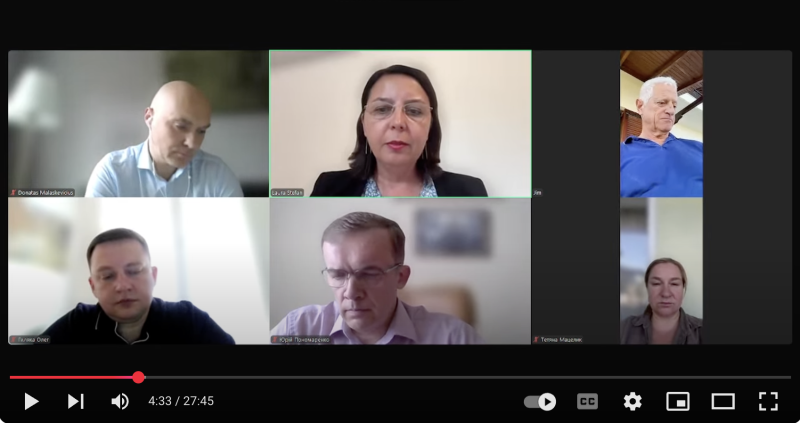The government’s rejection of Oleksandr Tsyvinskyi sparks backlash, while the selection commission confirms the process was lawful, and cannot be rejected.
Ukraine’s agency for investigating economic crime remains leaderless after the government rejected a veteran investigator nominated by an independent selection process, citing concerns about his family ties to Russia.
At a July 14 meeting, members of a selection commission composed of Ukrainian and international delegates dismissed the government’s concerns. They reiterated their choice of Oleksandr Tsyvinskyi to lead the Bureau of Economic Security (BES).
Tsyvinskyi, a seasoned investigator with the National Anti-Corruption Bureau of Ukraine, was supported by all three international members of the selection commission. Ukrainian delegates on the panel opposed Tsyvinskyi's nomination, but in accordance with the commission's rules, they were superseded by the decision of the international members.
Members of the selection commission reiterated in the livestreamed meeting that the competitive process was conducted lawfully. They confirmed that Tsyvinskyi remained the commission’s official nominee, and that the government' rejection on July 8 was not based on any evidence that had not previously been reviewed by the panel.
The government had cited a letter from the Security Service of Ukraine (SBU), which stated that Tsyvinskyi’s father held a Russian passport.
However, the selection commission’s chair, Laura Ștefan, said information in the letter had already been discussed.
“Everything in the SBU letter was known to us beforehand,” said Ștefan during the meeting. “It contained no new grounds for rejection.”
Ukrainian law says the government has 10 days to appoint the person put forward by the commission.
There is no mechanism for rejecting a properly-nominated winner, according to a legal analysis prepared by the team of opposition parliamentarian Yaroslav Zhelezniak, who co-authored the legislation regulating the selection of candidates to lead the BES.
The government did not respond to a request for comment before publication.
Representatives of Ukraine’s business community have reportedly criticized the government for failing to appoint Tsyvinskyi.
Anastasia Radina, a member of the ruling party who sits on Parliament's anti-corruption committee, emphasized that the government cannot legally reject the nomination.
“The Cabinet of Ministers has no authority to question the decision of the selection commission or to request additional candidates just because the winner ‘doesn’t suit them,’” she wrote in a statement posted on Facebook.
Zhelezniak, the opposition parliamentarian, urged the international community to pressure Ukraine’s government to follow the law and appoint Tsyvinskyi. He said the Group of Seven major economies, the International Monetary Fund, and the European Union, have previously been silent on Ukraine's failure to enact promised legal and customs reforms despite economic aid.
“The next step was the Economic Security Bureau when (the government) openly said that ‘No guys, we receive money, we have approved the law, but we're not going to follow it, because we don't want to reform and stop corruption,’” he said in an interview.
“Once again, there was not strong feedback from G7 or IMF or EU,” Zhelezniak said.



